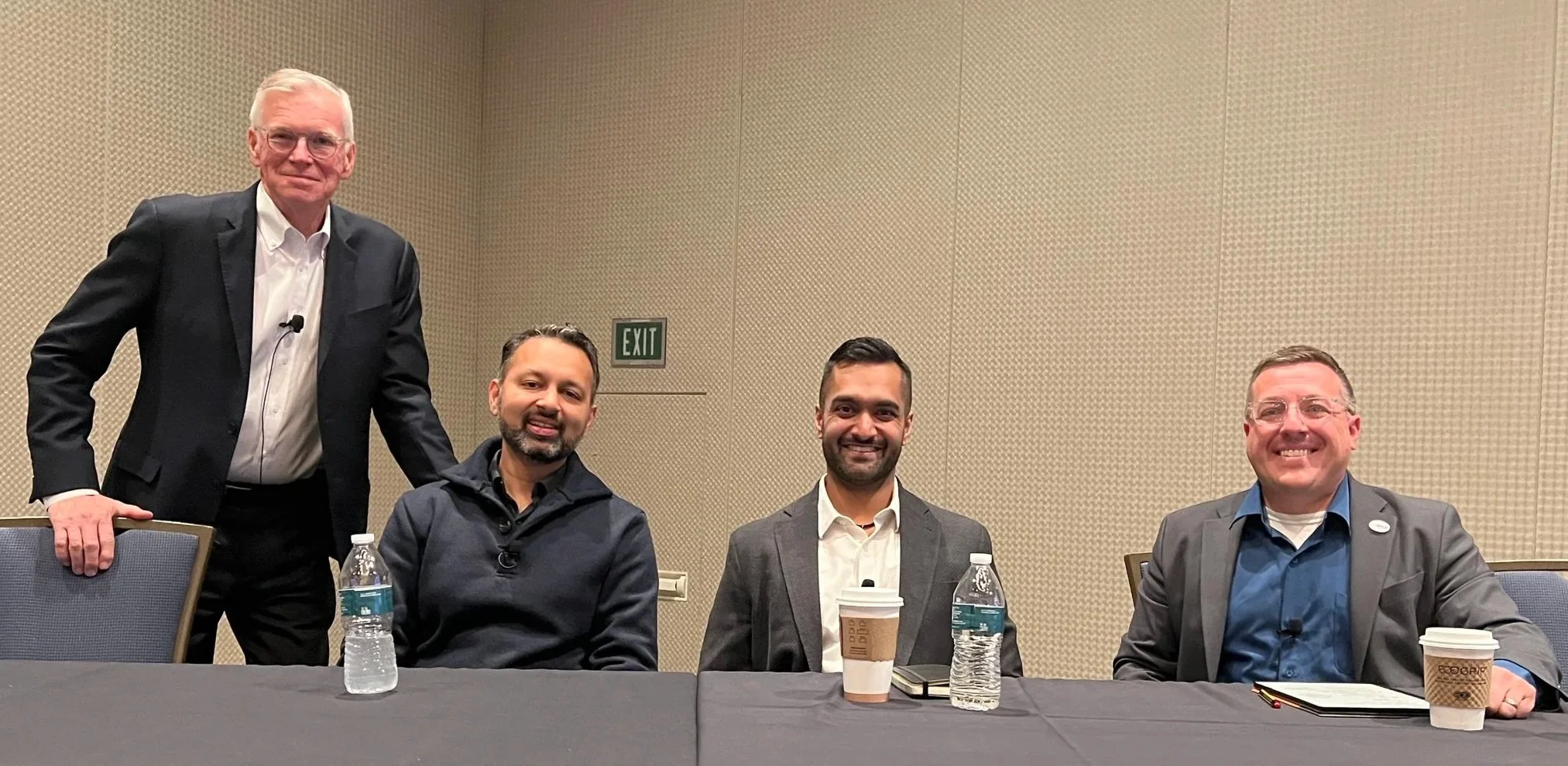From tasks to people: how AI vendors are reframing the automation conversation
NASP “AI in Specialty Pharmacy: The Revolution is Here - Are we ready?” panelists (left to right) Harry Travis, panel facilitator and CEO of The Travis Group, Ankit Jain, CEO and Co-Founder of Infinitus AI, Saar Mahna, CEO and Founder Banjo Health and Jonathan Ogurchak. CEO Founder Zeal Specialty Pharmacy
From the Rockies to Central Florida, my takeaways on NASP ‘25
This year's National Association of Specialty Pharmacy (NASP) annual meeting in Aurora, Colorado, did not disappoint. With over 2,000 attendees, 100 exhibitors, and 80-plus educational and business sessions, every conceivable topic relevant to specialty pharmacy practice and business was thoroughly covered.
The perennial favorites were all there: biosimilars, 340B, cell and gene therapies, patient access, regulation, and patient engagement. But the up-and-comer that caught my attention? AI had truly arrived. Five dedicated sessions and at least twenty exhibitors with AI prominently displayed in their booth graphics told the story: this isn't emerging technology anymore. It's here now.
Where AI fits (spoiler: everywhere)
In my conversations throughout the conference, one thing became crystal clear: AI fits into specialty pharmacy at practically every patient touchpoint and every task involving data retrieval that moves prescriptions closer to shipment.
One AI vendor made a particularly bold claim that stopped me in my tracks: "If you hire us, you will never need to hire another pharmacy technician." Now, that's quite a statement. But it sparked something important for me that is if there's a simple way to characterize how AI will impact pharmacy operations, it's to think of AI as replacing tasks, not people.
Of course, I realize that when you total up enough tasks, you do end up with a person. But what's encouraging is seeing AI companies take a more employee-centered approach, focusing on task elimination rather than staff reduction. It's a subtle but meaningful distinction.
The "top of license" promise (and my concern)
If I heard that AI will allow pharmacists to work "at the top of their licenses" once, I heard it a hundred times. While I appreciate the sentiment, I worry there may actually be fewer pharmacists working at the top of their licenses as these efficiencies scale.
Here's my thinking: if AI can handle benefit verification, prescription intake, and customer service tasks, the operation will naturally require fewer pharmacy team members overall. The remaining positions may focus more on clinical oversight and complex problem-solving, but the total number of team members practicing at that elevated level could actually decrease simply because there are fewer roles needed.
The sweet spot dilemma
Here's what's fascinating: in my conversations with both pharmacy operators and AI vendors, there wasn't agreement on a universal "sweet spot" for a pharmacy's first AI implementation. AI-assisted benefit verification, patient assistance, customer service, and prescription intake were all mentioned as ideal "first projects."
The common concern I heard repeatedly? There are simply too many vendors pushing too many solutions for the average specialty pharmacy to properly evaluate and prioritize. This presents a clear opportunity for knowledgeable consultants to help pharmacies triage potential AI solutions, something I'm seeing more of in our RxRoundtable community.
The integration reality check
Here's my final takeaway, and it's an important one: the vast majority of AI solutions for pharmacy are "plug-ins" to existing dispensing and patient management systems. We're looking at years (many years) before these plug-ins fully integrate into truly smart, AI-powered patient management and dispensing platforms.
We're in the very early innings of what will be a very expensive game of vendor consolidation. As someone who's presented extensively on AI in specialty pharmacy, I'll be paying close attention to the players and potential winners and losers.
The AI revolution in specialty pharmacy isn't coming. It's here. The question now is how thoughtfully we implement it. What's your take on AI's role in specialty pharmacy? I'd love to hear from fellow executives who are navigating these decisions.

